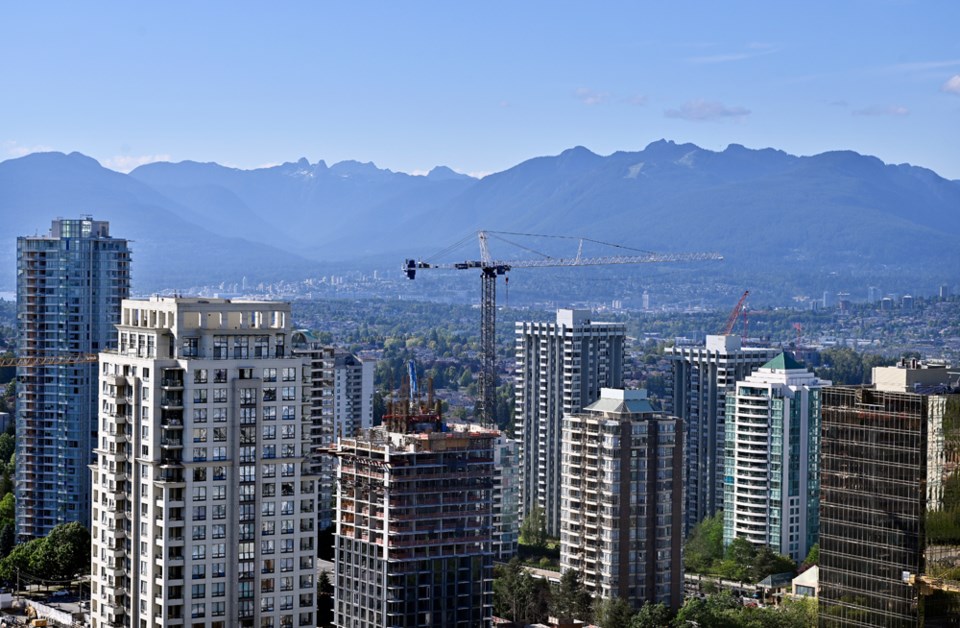Burnaby council voted to forge ahead with the creation of the Burnaby Housing Authority, despite opposition from three councillors.
Council approved moving to incorporate the housing authority, one of the final steps before getting the initiative up and running, in a 6-3 vote late last month.
The structure of the Burnaby Housing Authority would allow the arm’s-length municipal corporation to act like a private developer while building much-needed affordable housing, particularly rentals.
But three councillors suggested recent provincial housing legislation will support that goal without the city needing to put its money on the line.
NDP-aligned Burnaby Citizens Association Coun. Pietro Calendino said the incorporation should be delayed by a year.
“I have a huge concern in getting started at this time without knowing what the landscape will be in the next year or two,” Calendino said at the special council meeting.
He said new housing legislation introduced by the province, which is intended to speed up housing development in B.C., causes “uncertainty.”
He pointed to a staff report detailing the financial considerations for the housing authority which he said raised “a lot of red flags.”
BCA Coun. Sav Dhaliwal and OneBurnaby Coun. Richard Lee supported the delay.
Need for BHA 'negated': councillor
Dhaliwal said the housing authority “is trying to accomplish something that no longer really is required,” as the province is now coming “to deliver affordable homes for British Columbians, including Burnaby.”
“Change in legislation has negated the need for (the) housing authority as such,” Dhaliwal said, adding the city can provide affordable rental homes without incurring the extra costs involved in creating the housing authority.
Calendino and Dhaliwal said they would prefer the concept of the housing authority to be pared down to an in-house civic department that purchases and manages the affordable rental apartments the city requires developers to build.
Dhaliwal repeatedly raised the concern that the money the city collects from developers to put into affordable housing is dwindling, meaning less money for the housing authority.
While it sets up shop, the housing authority plans to get money from the city, whether through its bank of reserves or borrowing capacity, private developers and third parties like BC Housing and Canada Mortgage and Housing Corp., according to the staff report.
The city plans to pay $2 million per year for the housing authority’s operating expenses until 2028, $475,000 for one-time start-up costs, and $100 million in financing over five years to 2028.
The goal is for the BHA to become self-sustaining through its own income.
Burnaby’s chief financial officer Noreen Kassam noted many of the financial questions posed by the councillors will be answered by the housing authority’s business plan, which will be developed by its board of directors after incorporation.
Opposition to delay
The majority of council rejected the delay.
“We have waited long enough to try and do something that will make a real difference,” independent Mayor Mike Hurley said, noting council has the final approval over any borrowing requested by the housing authority.
He said he supported seeing “what good business plans” the housing authority can come up with to get the city away from an estimated 40 per cent extra that developing housing would cost if done by an internal city department.
BCA Coun. Alison Gu agreed.
“Delay is what we’ve done for decades on housing, and at this point we’re trying to play catch up,” she said.
“There is ample time to see how the province’s legislation will impact housing, and at the end of the day, the housing authority will not be having shovels in the ground tomorrow.”
“If you ask any young person, any renter, any person without family intergenerational wealth who wants to build a life in Burnaby and ask them to imagine a life where housing, their housing is secure and stable and 30 per cent or less of their income – you’ll certainly not hear that the need for affordable housing is negated,” she said.
In 2021, the city said it needs around 5,700 new rental homes in total to meet its housing targets, according to the housing needs report.
Burnaby has the second highest rents in Canada, according to a recent Rentals.ca report.





